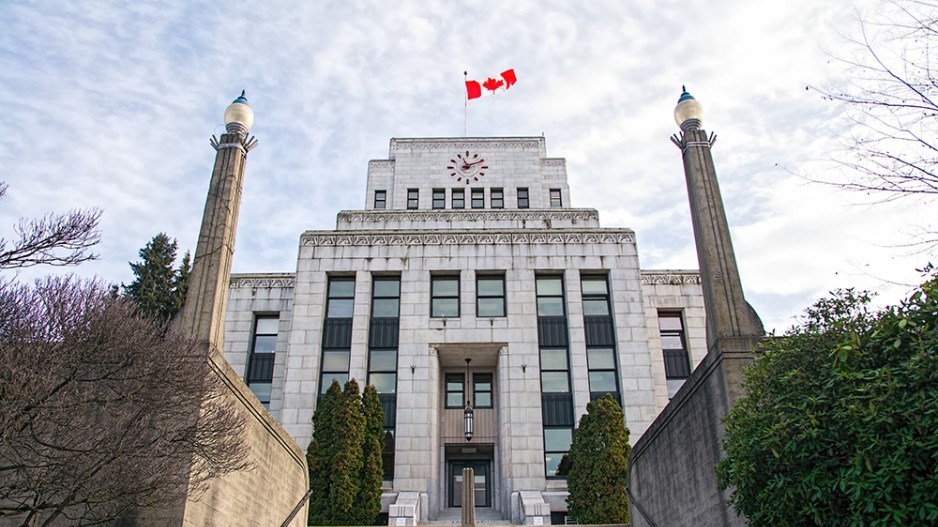The civic election resoundingly demonstrated the public wants change in governance at Â鶹´«Ã½Ó³»city hall. On reflection it showed systemic influences that affected the election results that may end up with no meaningful changes where they are needed the most: in affordability, land use planning, and development.
Affordability is the number one issue. However, rezonings over the last decade have only increased land values, speculation, demolition, demoviction and displacement. More new expensive smaller units do not meet local needs. Yet it is these interests who have the most incentives to retain their grip on city hall.
Big money continues influencing elections, especially from major developers. Campaign finance reforms in 2018 banned corporate and union donations, while adding annual maximum limits on donations per person. However, Kennedy Stewart (Forward Vancouver) raised $1.2 million and Ken Sim (ABC) $1.6 million, with final totals yet to come. This influences elections through big campaign budgets, relentless advertising and misleading polling, with an ideological narrative that leads to strategic voting. The reforms are not working as intended. Lower limits on campaigns and third parties are needed.
Elections are not won based on the best ideas on how to solve the issues of our times, but about which party can afford the biggest communications budget. The perceived ideology of the so called "left" and "right", both of which are funded by many of the same developers, undermines democracy and prevents the meaningful changes that are so desperately needed at city hall.
Growth should increase affordable options to meet local needs that fit within the context, character, scale and infrastructure of each neighbourhood to ensure a liveable sustainable future. Population increases by census are one percent per year. Accommodating this requires proper planning based on realistic data, not just arbitrary towers anywhere like in the Broadway and Â鶹´«Ã½Ó³»plans. The current approach is opposed by many, including former city planners, although supported by the development industry lobby.
The third front-running party, Colleen Hardwick and TEAM for a Livable Vancouver, chose not to accept donations from major developers, and suggested banning councillors from voting on projects where they received donations from the developer. Independent of this influence, TEAM's multi-coloured logo symbolize a non-partisan approach to civic issues that brings together people from different backgrounds to focus on ideas for the city with a centrist non-ideological platform.
As TEAM's president and the policy committee chair, it was rewarding to see so many people from different backgrounds contribute. TEAM held a policy conference in October 2021, with former director of planning Larry Beasley as the keynote speaker. His comments contributed to the TEAM policies, along with many others over a year. Former director of planning Ray Spaxman and many others in the planning field, such as UBC's Patrick Condon, David Ley and Penny Gurstein, endorsed Colleen Hardwick and TEAM.
An early Forum Research random telephone poll from July showed, based on broad demographics spread across the city quadrants and downtown, that 83 percent of voters are concerned about the amount of influence major corporate developers have in city hall decisions. Further it showed that 56 percent were opposed to the Broadway Plan. The poll also showed that any of the three front-running parties were statistically within the range of winning, with a large amount of undecided.
But during the election period, several unreliable panel polls supported a narrative of a two-way race between the developer-funded parties. The Sim/ABC campaign supporters used this to argue that potential vote splitting meant a vote for TEAM was a vote for Kennedy Stewart. So rather than voting for the platform and candidates that one agrees with, it became a vote against the incumbent.
Otherwise intelligent people stopped thinking about platforms and strategically voted based on fear. So the Sim/ABC win should be viewed as a vote against Kennedy Stewart and the current council's direction rather than a vote for the thin ABC platform, which was removed from the ABC website within days after the election.
Ken Sim's post-election speech reached out positively to work with others, including Colleen Hardwick. However, one of the first groups presenting to the new council is the Urban Development Institute (UDI), representing many of the major developers who funded most of them. This is similar to 2018, so not much change is apparent.
Going forward, the province needs to consider further campaign reforms to more effectively remove big money influences by drastically reducing campaign finance total limits, including from third party organizations. More of the same is not working.
Elizabeth Murphy is a private sector project manager and was formerly a Property Development Officer for the City of Vancouver's Housing & Properties Department and for BC Housing. [email protected]



